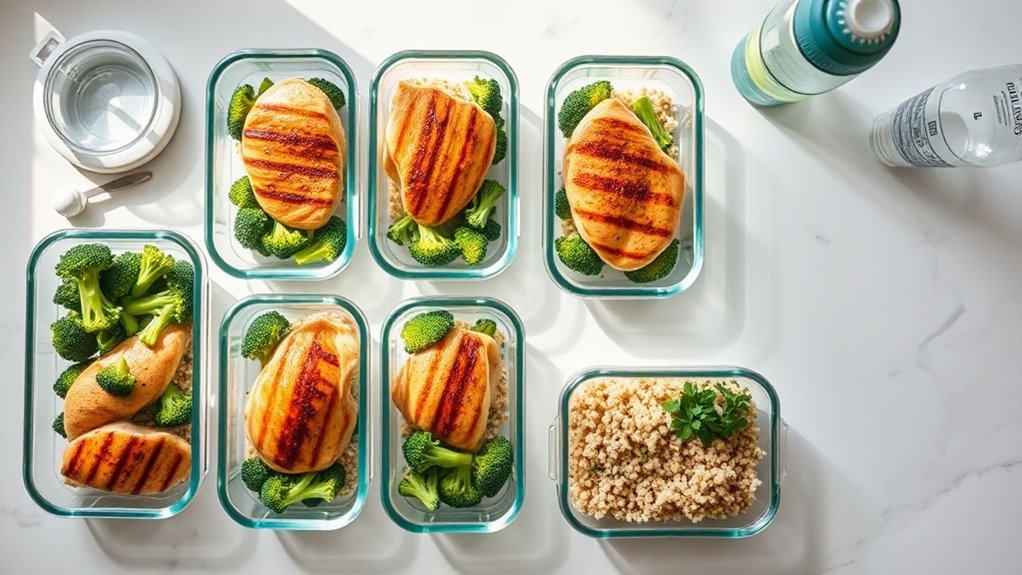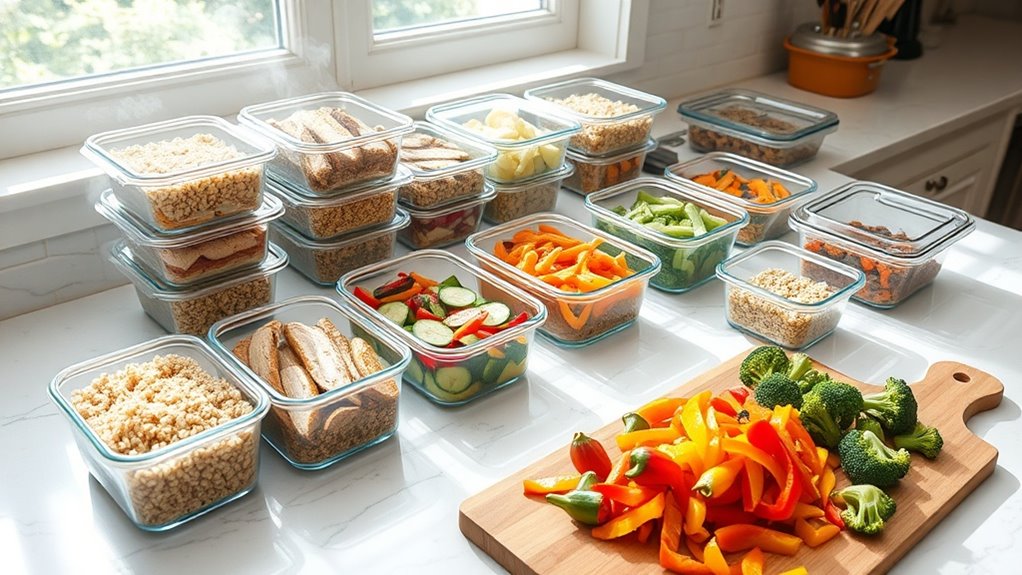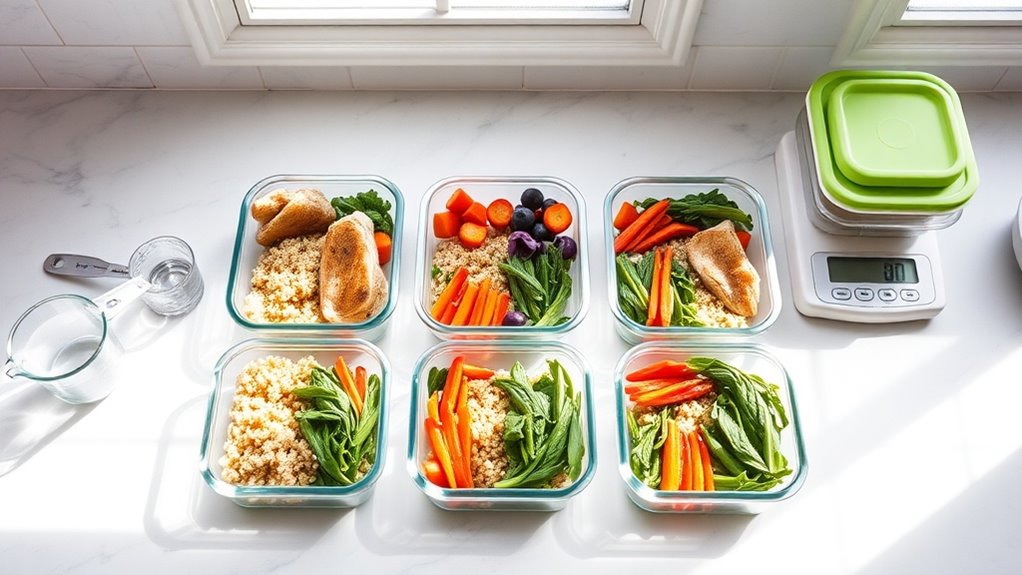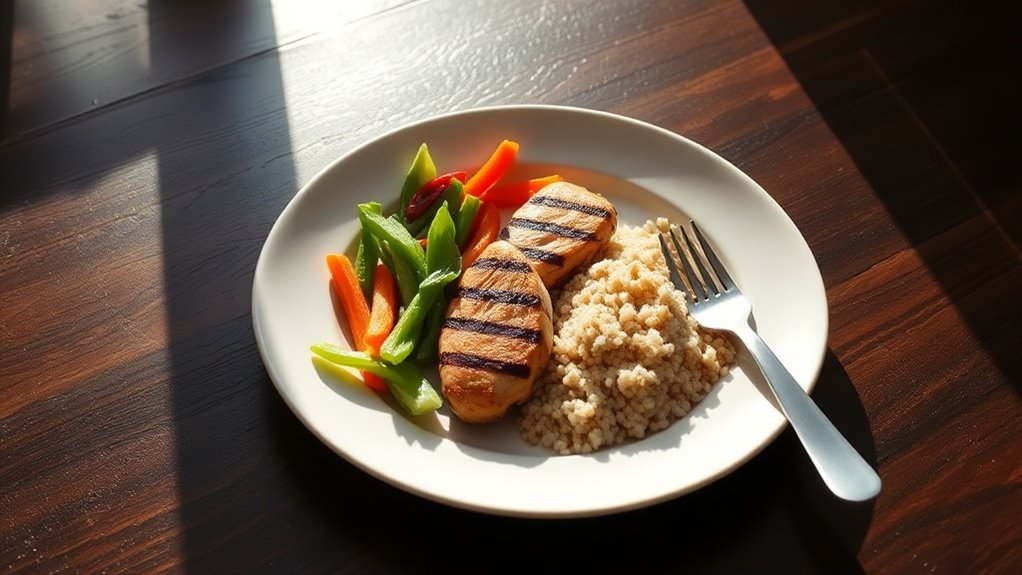How to Plan Meals That Make Fat Loss Easier
Studies show that 95% of diets fail within the first year, largely due to unsustainable meal planning approaches. You’ve likely experienced the frustration of trying to lose fat while juggling daily responsibilities and food choices. By implementing strategic meal planning techniques based on nutritional science, you’ll discover how to create sustainable eating patterns that support your fat loss goals. Let’s explore the proven methods that transform this challenging process into a manageable routine.
Key Principles of Fat Loss Meal Planning
Effective meal planning for weight loss demands creating a moderate caloric deficit, maintaining adequate protein intake, controlling portion sizes, emphasizing nutrient-dense whole foods, and timing meals to support metabolic function and satiety throughout the day. Additionally, incorporating healthy snacks throughout the day can help maintain energy levels and prevent overeating during meals.
Building Balanced Plates for Optimal Results
Creating a balanced plate serves as the foundation for successful fat loss meals.
Fill half your plate with non-starchy vegetables like broccoli, spinach, or bell peppers.
Allocate one-quarter to lean protein sources such as chicken, fish, or tofu.
Reserve the remaining quarter for complex carbohydrates like quinoa or sweet potatoes.
Add a tablespoon of healthy fats through olive oil, avocado, or nuts. Incorporating whole foods in every meal can enhance nutrient intake and support sustainable weight loss.
Smart Food Choices That Support Fat Loss
Beyond plate composition, selecting specific nutrient-dense foods optimizes your fat loss efforts.
Focus on lean proteins like chicken breast, fish, and egg whites, which increase satiety and preserve muscle mass.
Choose high-fiber carbohydrates such as quinoa, sweet potatoes, and leafy greens to control blood sugar.
Include healthy fats from avocados, nuts, and olive oil in moderate portions. Additionally, embracing mindful eating can enhance your overall relationship with food and support your fat loss journey.
Meal Prep Strategies for Long-Term Success
Three key strategies form the foundation of successful meal preparation: batch cooking, portion control, and strategic scheduling.
Cook multiple servings of proteins and complex carbohydrates on designated days. Divide them into measured portions using food scales, and store in containers for the week ahead.
Schedule your prep sessions during low-stress periods, typically weekends, to maintain consistency. Incorporating whole, unprocessed foods into your meal prep can further enhance nutrition and support your dietary goals.





